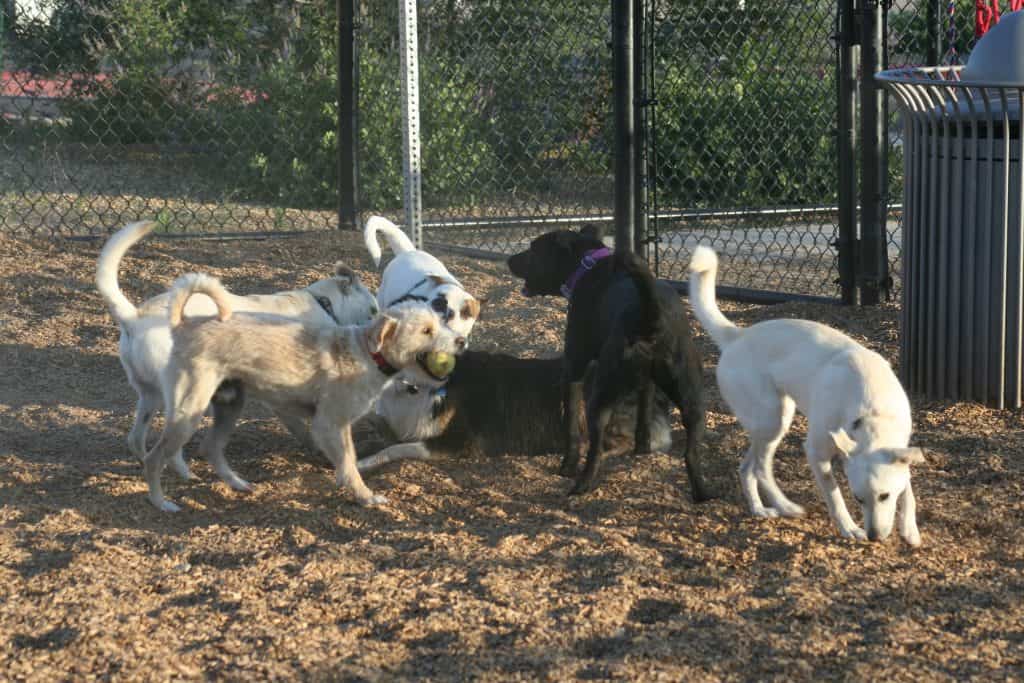The idea for this came from an article by a dog trainer, Val Hughes, who tried to help people by identifying deceptive ads for a dog behaviorist. To do this, he surveyed some professionals. As much of his survey was with dog trainers, the opinions are a bit varied. I’ve only quoted portions of their responses here, and you can read their full responses in the article if interested.
The question is how useful and accurate are their professional responses, and if they have any idea what a behaviorist really is. And you’ll also see that I do have a few rather strong opinions on this topic.
The Trainers Responded
1-The Why of the Way
To me, in relation to dog training, a behaviorist is someone who focuses on the underlying rationale as to why a dog may behave in a certain way...
While a behaviorist may change the dog’s environment to elicit a change in behavior, a trainer typically uses reinforcement, positive or negative, to make a dog behave in a certain way (like come when called). Generally, a trainer is not overly concerned with why a dog is doing or not doing something.
Amy Suggars (Ohio)
As the noted veterinary behaviorist Dr. Karen Overall has said, the why can be fun, but, that’s not behavioral psychology. It’s not the why or motivation, but the rules behind the behavior that can be analyzed. The rules are what are used to determine what can change or add behaviors.
The why would only come into this if you intended to sit the dog down for talk therapy, but that’s psychoanalysis and not behavioral psychology. As for influencing the dog’s behavior with reinforcement, there’s really little difference there. A good dog trainer will often do just the same. I don’t know what she’s thinking of in a behaviorist changing the environment, as that doesn’t really say anything.
A slightly different take on that
But in following her line of thought just a bit differently, I have found that many dog trainers often rely on only canned protocols they follow, either their own or from articles. These protocols simply give step-by-step directions and they often just pick the closest one to the issue. Instead, I use the behavior rules to create a suitable protocol, and doing that requires the skills to rapidly analyze behavior. But what are those rules and how would we know if somebody has these skills? That often comes down to what I call behavior prediction.
One of the fastest ways I’ve found to determine if a person has such skills is to have them manage a playgroup of strange shelter dogs. To see if they can both predict and guide the dog’s behaviors, both with people and with other dogs. This is far more accurate than having a person cite certifications or give you their personal theory on the animal’s feelings. This is closer to taking a real-world test and having the dog immediately grade your results.

While the dogs’ behaviors will have similarities, some dogs will always react differently from others, and you have to rapidly analyze and compensate for that. You have 6-12 dogs running around, with different things happening at once, and all that changing over time. While you won’t be perfect, how well can you learn and manage them, and anticipate what’s about to happen? How possible is this to do? Check out Dogs Playing for Life.

I’ve seen a few dog trainers who can manage that situation without a great deal of preparation. But many others who insist that slow prior evaluation of each of the dogs is the only possible way for that to work.
Similarly, with highly aggressive or scared dogs, look for the person who can confidently and effectively approach them, and do so without using any food or other distractions. No, not in an instant, but with a few minutes of effort.
2-The Research Background
From my experience, a lot of trainers don’t know how to properly tackle scientific journals. I’ve seen people touting articles with poor-quality data and analysis because they don’t have a research background.
Nyssa Gatcombe (Maine)
A rather interesting distinction, but one that we could word a bit differently. Besides peer-reviewed research and articles, there are also a number of texts which are used at the university level. Some of these can also be found on professional websites as recommended reading. But, I’ve never found a dog trainer who has read them or could read and explain one of them. As for a research background, that’s quite different from clinical skills and has no relation to this.
Of course, if you don’t understand those texts either, then you have no way to determine if somebody else can, so that’s not really a criterion that either a typical dog owner or Nyssa could effectively use.
3-The Certified Certification
Behavioristsomebody who is board-certified through the American College of Veterinary Behaviorists. Otherwise, it’s a dog trainer.
Sarah Adams (Oregon)
Better than someone using the term “behavioralist,” but I generally ignore trainers who use the term behaviorist. Unless you’re a veterinary behaviorist, I don’t have time for that nonsense.
Erin Saywell (Maryland)
A bit of a cop-out. There are relatively few veterinary behaviorists in this country, but far more certified behaviorists from organizations like the IAABC and the CAAB.
To me, it refers to a board-certified veterinary behaviorist or a certified applied animal behaviorist. Both require advanced degrees and have strict criteria for certification.
Eileen Anderson (Arkansas)
Well, the need for an advanced degree depends on exactly which group is giving the certification. And the last time I spoke with a veterinary behaviorist I mentioned to him that I had recently seen a certified behaviorist. He then gave me a lecture on how relatively little education and knowledge they really have. That only the veterinary behaviorist has in-depth education and training in this area. He then went on to give explanations for several of a dog’s behaviors that contradicted those from Dr. Overall I cited above, and she is one of the leading veterinary behaviorists in this country.
And I happened to know that his own education had more of a focus on veterinary psychopharmaceuticals and some ethology, but rather light on applied animal behavioral psychology.
And that certified behaviorist (IAABC and PhD) the vet was putting down was actually really terrific on teaching dogs (and many dog trainers) all sorts of complex training skills and various activities, far better than I. However, bring in a feral dog and she had no idea what to do. With one very scared dog, she spent 3 days with food treats just to get near the dog before giving up. Instead, in 20 minutes I had the dog loosely standing next to me and attention-seeking, using no food at all. From scared of cars and upchucking, Willow shortly went to enjoying the rides.

Another indicator I’ve used was to take a copy of Lindsay’s classic Applied Dog Behavior and Training. I’d open it to the middle, and just ask them to read and explain a random paragraph. Many of the purported behaviorists I’ve met could not even read it, while anybody who had actually studied psychology should be able to do so.
The Professional Opinions
That collection of answers included certification, advanced degrees, having a research background, and knowing why a dog does something. None of which are needed, or actually indicate knowledge and skills. Nothing that shows a real difference between the need for and capabilities of a behaviorist as opposed to a dog trainer. All that begs the question, of why he would believe that a dog trainer would have the answer to his question?
If we took a moment to look at a dog trainer’s typical interactions, we’d see that they very rarely have any discussions with a behaviorist. Instead, they are speaking to dog owners, most of whom have pretty simple issues. And where the people know far less on this topic than the dog trainer. Over and over again, they have to explain what they see as very simple things. After enough time, they will automatically tend to approach all questions as though they were coming from a similar source.
When I also look at cases where the dog trainers failed over months, but where a behavioral approach gave success in weeks, they had no interest in learning what was done or reviewing their own approaches. The only exceptions I’ve seen are where they become used to repeatedly working with a behaviorist over time. A fairly rare occurrence. Oh, they may be working with a more senior dog trainer, but that’s hardly the same.
What is it that is Certified?
Clearly, certification does not mean you know the entire field. In some cases, not even that you are aware of what you don’t know, and a particular issue with that does seem to be almost a constant.
From all the dog professionals that I have met, it seems that the higher their degree or credentials, the more they tried to project themselves as true experts. They often with great confidence gave either wrong or singular explanations for behaviors that may be due to several quite different reasons. They typically refused to discuss their opinion and became quite irritated if you used the dog to prove them wrong. Similarly, if you introduce the actual text from a real textbook, they refuse to even read it, dismissing it as just another opinion.
Chatting with another veterinary behaviorist that I know, she described to me how she handles certain typical behavior problems. Except, what she told me was what I would expect a typical dog trainer to do, and it will either take considerable time or may not succeed at all. She never tried to further qualify the problem and the dog’s current learned behaviors before starting her treatment. Nor did she recognize that some more skilled treatments may be much faster and more certain. She seemed so confident in her approach and dismissive of any questions that I simply let it drop.
Perhaps the best thing to look for here is not some arbitrary certification, but somebody with demonstrable success in the particular issues that you need to be addressed.
The Type of Problem Determines the Focus
As with dog trainers, most behaviorists focus on the owner’s involvement and on teaching the owner. But I’ve worked with many dogs who could not be adopted or managed in a shelter or rescue. If experienced shelter staff and dog trainers cannot handle them, trying to teach a dog owner may take a very long time or not be realistically possible.
That’s where a rehabilitation behaviorist will focus directly on the dog, with the primary goal of teaching the dog to be a dog. That includes some very basic training that’s needed for basic control and effective communication. Then the social skills of meeting and dealing with dogs, people, places, and common activities. When this is done, the dog is ready to be adopted, and the owner can then work with a good dog trainer.
For the majority of dog problems I’ve seen, I have just referred to a dog trainer. In many of those cases, the main work is in getting the dog owner to stop doing some things, and to instead do some other things. A process that often takes longer than directly teaching the dog, and I’ve known some dog trainers who were quite good at that.
And, occasionally, I’ve seen a problem dog with a severe behavioral issue that was not sufficiently responsive to only behavioral techniques. I then referred them to a veterinary behaviorist.
As Dr. Overall (yes, she is my favorite) has said, the main purpose of using psychopharmaceuticals with animals is to assist in the effectiveness of behavior techniques. That they are not considered a solution by themselves.
She’s Certified for What Now?
This is certainly an area where One Size Does Not Fit All, nobody covers everything, and some of the specialties have no real certification that applies. As an experiment, I spent 3 years running and teaching dog playgroups at a large municipal shelter, to find how many people could learn to do this well. While a few were able to handle small numbers of easy dogs, only a single person could handle difficult ones. And the dog trainer hired by the shelter as their behaviorist didn’t have a clue, wouldn’t stop physically grabbing the dogs instead of guiding them, and was afraid of the larger dogs and stopped coming, for all her credentials.
They later hired another dog trainer, and this one actually had a formal certification in running shelter playgroups for dogs. She’d been through their course and passed their testing. My first clue that things may not be quite as they seem happened when she had trouble taking some mildly reactive dogs out of their kennels. I then took one of them out for her with no difficulty at all. The most I later saw her do was to slowly introduce two quiet dogs in the play area, with both still on leashes. And this was after we had run about 3,500 dogs through playgroups using other people who lacked all her certifications.
What’s at the Top of the Food Chain?
That’s often felt to be the Board-Certified Veterinary Behaviorists. To approach this topic, I’ll now include a book review I wrote some years ago.
From the American College of Veterinary Behaviorists
I thought this book was worth looking into, although all the hype is more than a bit much. From “Ultimate Experts” to “ultimately challenge the way we think about our dogs.“, to cutting edge science. The level appears aimed at the very beginning dog owner, and they start very typically by decrying some of the old, non-scientific approaches. But the book, with its many authors, actually starts with fragments and incomplete explanations, presenting some conclusions that are simply wrong due to that, both scientifically and even logically.

Each author is different, with some are very caught up in the current positive-positive jargon, where all punishment is wrong (don’t ever say “no”). Some authors do properly define what punishment means in this context, but then they ignore that definition and use only the extreme examples to support their points. At one point some teach “variable ratio of reinforcement“, but that’s only a single piece of Schedules of Reinforcement, and it’s missing the other components that are needed here to make that practical. It’s not really that complicated to tell people a fuller picture instead of a fragment, which sadly makes the people think they were given the entire picture.
And this is not “cutting edge” as they claim, but principles that were developed decades ago.
From an incorrect definition of learning to their claiming that operant conditioning is just a fancy term for training and that we should forget classical conditioning, as operant conditioning can be used to do anything. These are the Ultimate Experts?? You’d do far better with Wikipedia.
After many issues with the first few chapters, I decided to skip around to other authors. I eventually came to separation anxiety by Karen Overall, and could finally put down my notepad. Her science was well established, logical, and complete. The details for assessment and treatment were as complete as space allowed. A few other chapters were fair to good, but very many were not, and advice in some conflicted with others.
There are now about 75 veterinary behaviorists and, just like any diverse group of people, their views often vary. However, “protocol” it seems requires them to only support their own views, and ignore even obvious errors from any colleagues, something which becomes very apparent from a careful reading of this text. After many years in this field, I know a few of them and have followed several others. In several cases they simply sit back on their own opinions, conflicting with both established texts and reality, so I would advise caution.
Crowell-Davis, Dodman, Overall, Christensen, and Dunbar are the ones I most follow but, as in many other fields, it often seems that the worst ones publish the most.
For the new (or any) dog owner, I’d direct them elsewhere.
The Needed Ingredients
What would I want in a dog behaviorist? It should start from some knowledge of ethology, and detailed familiarity with a wide range of typical behaviors for the species. The fundamentals of applied animal behavioral psychology, and some of the clinical aspects.
On analyzing a dog’s behavior, they must know that any behavioral snapshot can always have several possible causes. That what appears like aggression may instead be just playing with his best friend. They need the ability to instead analyze a behavioral sequence by applying various stimuli and correctly predicting the results, instead of just giving some “professional” opinion.
For that, I just prompt my dog to do something that’s a bit unusual but typical for him, where I know just where the behavior is going to lead. Then, I ask the behaviorist to explain it. It’s fine and okay if she gives a few reasonable possibilities that are wrong. But sometimes I’ve heard a single and confident answer that’s way off base and is backed-up (only) by her experience. In that case, it’s time to wish her a nice day and walk away.
They must also know how to rapidly test the dog’s response to a technique or protocol, instead of just saying to try it for a week and see, as most dog trainers would do. It is important to give clear expectations and some benchmarks to determine if something is working or not. I have very often taken a dog with very persistent, undesired behaviors, and rapidly made a small change. Where the owner is then very surprised when the dog does or stops doing something. It’s not a permanent change, but one that they haven’t before seen or expected.
A simple example would be an excited dog who keeps jumping up on people, even after being yelled at and pushed off. Where I just demonstrate a quick, simple, and quiet method of simply asking the dog not to jump on me, and he listens. Rather a simple example, but it presents the basic idea. And an important factor is that no food or other distractions are used here.

While various certifications may increase the likelihood that the person is capable, I don’t feel that number goes up very high. That leaves no really good answer unless you know another dog they helped who had issues similar to yours. Or you’ve learned enough about this area to recognize the capable people.
Nothing very different from other areas. To get my car fixed or seeing a new doctor for some medical issue, checking around with other people is often far more fruitful than asking for their certifications.
